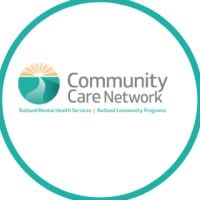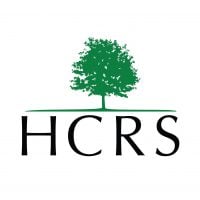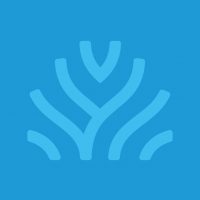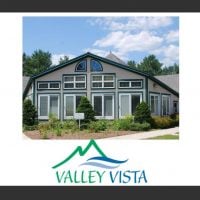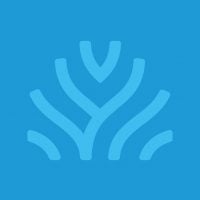Rutland Mental Health Early Childhood Services
Drug Rehab Center in Rutland, Vermont
Rutland Mental Health Early Childhood Services is a mental health facility in Vermont that offers a wide range of services, including evidence-based treatment for addiction and substance abuse, individualized treatment plans, and resources for continued recovery, and is accredited and licensed by various organizations.
About Rutland Mental Health Early Childhood Services in Vermont
Rutland Mental Health Early Childhood Services is a comprehensive mental health services facility located in Rutland, Vermont. The center provides a range of mental health services for adults, children, and families, including assessment, individual, family and group counseling, medication management, outreach services, and special programs for at-risk youth. They are committed to providing the highest quality of comprehensive treatment for adults and children suffering from a variety of mental health disorders, including substance abuse and addiction.
Rutland Mental Health Early Childhood Services provides evidence-based, individualized treatment and services for adults and young adults suffering from addiction and substance abuse. They offer a variety of interventions developed to be highly effective in treating addiction, including cognitive-behavioral and dialectical behavior therapies, family, education, and other strategies. Their treatment plans are tailored to meet the individual needs of each client using assessments, goal-setting and skill-building. Furthermore they also provide resources to support continued recovery, such as 12-step programs that provide accountability and emotional support.
Rutland Mental Health Early Childhood Services has earned several certifications and accreditations, including the American Association of Marriage and Family Therapy (AAMFT) for their family counseling programs, and the American Accreditation Commission for Addiction Services (AACAS). Additionally, they have received the Joint Commission Accreditation for their commitment to providing excellent care, and their facility is licensed by the Vermont Department of Mental Health (VDMHS). Rutland Mental Health Early Childhood Services also employs a team of certified and experienced clinical practitioners who can provide tailored treatments for addiction, mental health and substance abuse.
Genders
Ages
Modality
Additional
Conditions and Issues Treated
Levels of Care Offered
This center offers a variety of custom treatment tailored to individual recovery. Currently available are Outpatient, with additional therapies available as listed below.
“Outpatient treatment is ideal for those who have a lower intensity addiction. It’s also suitable for those with a supportive environment and those on a tight budget.
Outpatient treatment can be considered the lowest intensity level of addiction treatment. It is ideal for early phase addiction or lower intensity addictions. It may involve weekly sessions instead of daily. Peer group support, 12-step programs, and individual counseling may still be used and anti-addiction medication.
Therapies & Programs
No single treatment works for all addicts; therefore, the goal of treatment and therapy should be to find what works best for each individual. Some people requiring addiction treatment may only need a few weeks of inpatient care. Others will require long-term residential care. Tolerance and withdrawal levels vary from person to person and thus affect the intensity of the treatment needed.
If an individualized approach to treatment and therapy is not offered, addicts may fail to reap benefits from their efforts. Professionals must customize plans according to their patient’s needs, limitations, and strengths. The goal of all forms of addiction treatment should be for addicts to find healthy ways to cope with their addiction and its underlying causes.
Couples therapy for drug addiction is a unique form of therapy that allows family members to work through the emotional issues of their loved one’s addiction together. Family members can support each other while learning how to cope with the addiction and encourage healthy changes.
Accordingly, couples therapy for drug addiction is designed for an addict and their significant other or spouse. The two will work with a therapist to learn how the addiction affects themselves and the relationship and how to break the negative patterns of behavior that may have developed.
Drug addiction can destroy a person’s life, as well as their family and friends. The loss of one’s ability to choose how to live and behave often leads the addict into depression, anger, guilt, and many emotional problems.
The therapies usually include siblings, children, and parents who are involved in their daily lives. These sessions are vital because they address past issues that may have hampered an addict’s or alcoholic’s recovery and provide support at a crucial time!
One of the most critical aspects of family therapy is helping addicts’ loved ones see their situation in a new light. It’s also one of the most challenging things a family can do when a loved one struggles with addiction or alcoholism.
Group therapy is held in a safe, controlled setting where patients can feel comfortable sharing their struggles and gaining perspective through shared conversations. It takes place in a group rather than one on one to prevent feelings of isolation or being unique in their situation while creating an environment for addicts at Rutland Mental Health Early Childhood Services to develop fellowship, accountability, and support. Group therapy is an important tool in recovery that prevents cravings that prompt a return to active addiction.
This type of therapy involves the use of a variety of therapeutic techniques to help addicts recover from past traumas that might have triggered their substance abuse. During these sessions, therapists will work with the addict to address painful memories and learn how to cope effectively with stressors as they arise.
During these types of sessions, therapists will typically focus on three main goals:
- Identifying and expressing painful emotions associated with past traumas.
- Reducing the effects of stress on an addict’s life by developing more effective coping mechanisms.
- Developing healthy ways of thinking about stressful situations that can help addicts avoid substance abuse issues in the future.
This type of therapy is typically used in conjunction with other types of addiction treatment services. By identifying and dealing with the root cause of addiction, most addicts can overcome their cravings and prevent relapse once they leave rehab.
Many different types of addiction treatment services exist to help addicts safely get sober, but it’s important for recovering individuals to find a therapist or support group that will help them address the root cause of their addiction.
Cognitive-behavioral therapy is a talking-based method that helps people struggling with addiction replace destructive behaviors with healthier ones. CBT also helps them identify the underlying thoughts and beliefs that cause these behaviors in the first place and ways to control those thoughts and feelings. It can be administered as a holistic therapy or as part of combination therapy and—as opposed to turning to drugs and alcohol—helps addicts learn how to respond to negative thoughts instead.
Payment Options Accepted
For specific insurance or payment methods please contact us.
Is your insurance accepted?
Ask an expert, call (888) 674-0062
Rutland Mental Health Services Associated Centers
Discover treatment facilities under the same provider.
- Evergreen Substance Abuse Services in Rutland, VT
- Community Care Network in Rutland, VT
- Rutland Mental Health Services - Outpatient Services in Rutland, VT
Learn More About Rutland Mental Health Services Centers
Additional Details
Specifics, location, and helpful extra information.
Rutland, Vermont 5701 Phone Number(802) 773-4819 Meta DetailsUpdated November 25, 2023
Staff Verified
Rutland Mental Health Early Childhood Services Patient Reviews
There are no reviews yet. Be the first one to write one.
Rutland, Vermont Addiction Information
Vermont has the highest rate of illicit drug abuse in the nation. A third of all Vermonters who are addicted to drugs admit to first having abused prescription drugs. The largest drug threat in Vermont is opioids. Fentanyl, dubbed the most dangerous drug in America, is responsible for more than half of all opioid-related deaths in Vermont. A third of all residents aged 12 and older who are addicted to drugs admit to first having abused prescription drugs. In many overdose cases, cocaine is also a contributing factor.
In Rutland, Vermont, about 1,600 people are dependent on cocaine. Cocaine is a stimulant that can cause a person to feel euphoric and energetic and increase a person's heart rate and blood pressure. The most commonly abused drugs in the Rutland area are heroin and prescription painkillers. The good news is that there are several excellent addiction treatment facilities in Rutland.
Treatment in Nearby Cities
- Colchester, VT (65.7 mi.)
- Barre, VT (47.2 mi.)
- Hartford, VT (30.3 mi.)
- Brattleboro, VT (56.0 mi.)
- Underhill, VT (63.8 mi.)
Centers near Rutland Mental Health Early Childhood Services
The facility name, logo and brand are the property and registered trademarks of Rutland Mental Health Early Childhood Services, and are being used for identification and informational purposes only. Use of these names, logos and brands shall not imply endorsement. RehabNow.org is not affiliated with or sponsored by Rutland Mental Health Early Childhood Services.
